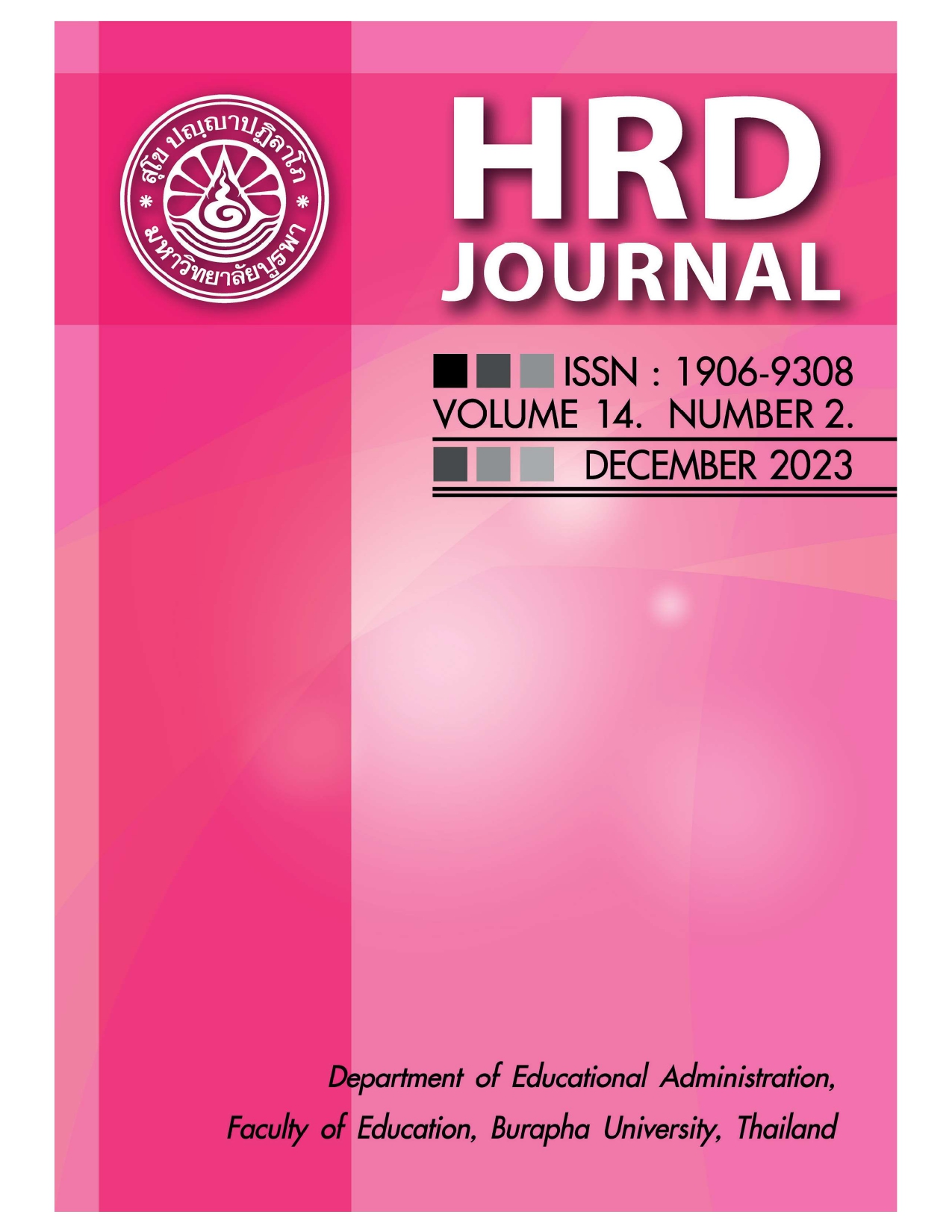CLUB ACTIVITIES MODEL USING THE PHILOSOPHY OF SUFFICIENCY ECONOMY LEARNING CENTER OF WATDONDAMRONGTHAM SCHOOL
Keywords:
Model, Club activities, Learning center, Sufficiency EconomyAbstract
The purpose of this research was to develop a club activities model using the philosophy of sufficiency economy learning center of Watdondamrongtham School by constructing and evaluating the model. This research consisted of two stages. Stage one was to construct the model using the philosophy of sufficiency economy learning center
by reviewing documents and relevant research and interviewing key Informants. The research instrument in this stage was a semi-structured interview form. The data were analyzed by content analysis. Stage two was to evaluate the model using the philosophy of sufficiency economy learning center. Seven evaluators in this research consisted of lecturers, administrators, teachers, and local wisdom. The research instrument in this stage was an evaluation form of the model. The data analysis was mean and standard deviation.
The findings of the research were as follows:
1. The ALO – 4I model consisted of stages of (1) Academic Skill (A), (2) Life Skill (L), and (3) Occupation Skill (O), and each rotation activity composed of four procedures of learning management, namely, procedure 1: introduction, procedure 2: Inquiry, procedure 3: Inclusion, which led to procedure 4: Integration.
2. Club activities model using the philosophy of sufficiency economy learning center with the quality in general at the most appropriate level.
(= 4.70, S.D. = 0.08)
References
กมล โพธิเย็น. (2564). Active Learning : การจัดการเรียนรู้ที่ตอบโจทย์การจัดการศึกษาในศตวรรษที่ 21. วารสารศึกษาศาสตร์ มหาวิทยาลัยศิลปากร, 19(1), 11-28.
ทิศนา แขมมณี. (2549). กิจกรรมปลูกฝังค่านิยมเศรษฐกิจพอเพียง. กรุงเทพฯ: ศูนย์ส่งเสริมวิชาการ.
_______. (2566). ศาสตร์การสอน องค์ความรู้เพื่อการจัดการเรียนรู้ที่มีประสิทธิภาพ. (พิมพ์ครั้งที่ 23). กรุงเทพฯ: จุฬาลงกรณ์มหาวิทยาลัย.
บุญชม ศรีสะอาด. (2560). การวิจัยเบื้องต้น. พิมพ์ครั้งที่ 10. กรุงเทพฯ: สุวีริยาสาส์น.
ปุณณิฐฐา มาเชค. (2565). การบริหารองค์กรทางการศึกษาในยุคดิจิทัล. เข้าถึงได้จาก http://edadm.buu.ac.th/public/backend/upload/edadm.buu.ac.th/document/file/document166623381159360600.pdf
ปรเมธี วิมลศิริ. (2559). หลักปรัชญาของเศรษฐกิจพอเพียงสู่การวางแผนพัฒนาประเทศอย่างยั่งยืน. วารสารสถาบันพระปกเกล้า, 14(3), 65-80.
พิมพ์พันธ์ เดชะคุปต์ และพเยาว์ ยินดีสุข. (2561). การเรียนรู้เชิงรุกแบบรวมพลังกับ PLC เพื่อการพัฒนา. กรุงเทพฯ: จุฬาลงกรณ์มหาวิทยาลัย.
มาริษา ศรีษะแก้ว และสถาพร วิชัยรัมย์. (2562). เศรษฐกิจพอเพียง : แนวทางการพัฒนาอย่างยั่งยืนในประเทศไทย. วารสารสหวิทยาการจัดการ คณะวิทยาการจัดการ มหาวิทยาลัยราชภัฏบุรีรัมย์, 3(1), 39-49.
วิวัฒน์ ศัลยกำธร. (2552). พอแล้วรวย. กรุงเทพฯ: Pinacle.
สำนักงานคณะกรรมการการศึกษาขั้นพื้นฐาน. (2547). การใช้แหล่งเรียนรู้ในโรงเรียนและชุมชน. กรุงเทพฯ: ม.ป.พ.
สำนักงานเลขาธิการสภาการศึกษา กระทรวงศึกษาธิการ. (2560). แผนการศึกษาแห่งชาติ พ.ศ.2560-2579. กรุงเทพฯ: พริกหวานกราฟฟิค.
สุรางค์ โค้วตระกูล. (2564). จิตวิทยาการศึกษา. พิมพ์ครั้งที่ 13. กรุงเทพฯ : จุฬาลงกรณ์มหาวิทยาลัย.
สุริยา ฆ้องเสนาะ. (2560). การจัดการศึกษาเด็กเล็กให้เป็นไปตามรัฐนูญแห่งราชอาณาจักรไทย พุทธศักราช 2560. สืบค้น 19 ธันวาคม 2565 จาก ewt_dl_link.php (parliament.go.th)
Johnson, D. W., & Johnson, R. T. (1994). Learning Together and Alone: Cooperative, Competitive and Intentional Learning. 4th ed. Englewood Cliffs. New Jersey: Prentice.
Downloads
Published
How to Cite
Issue
Section
License
Copyright (c) 2023 Department of International Graduate Studies in Human Resource Development, Faculty of Education, Burapha University

This work is licensed under a Creative Commons Attribution-NonCommercial-NoDerivatives 4.0 International License.
Copyright@HRD Journal, Burapha University






